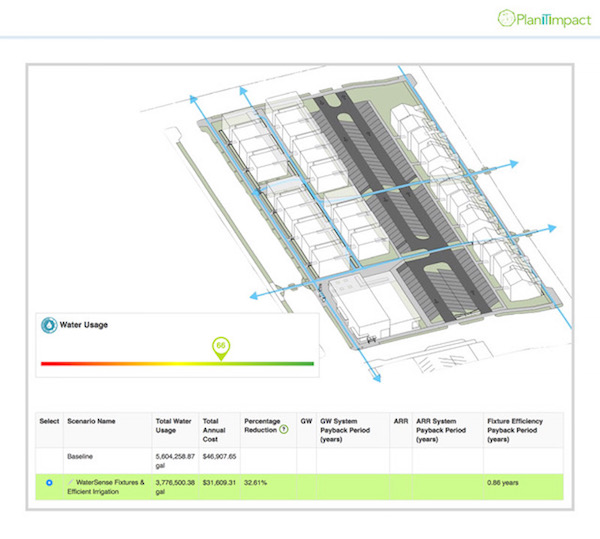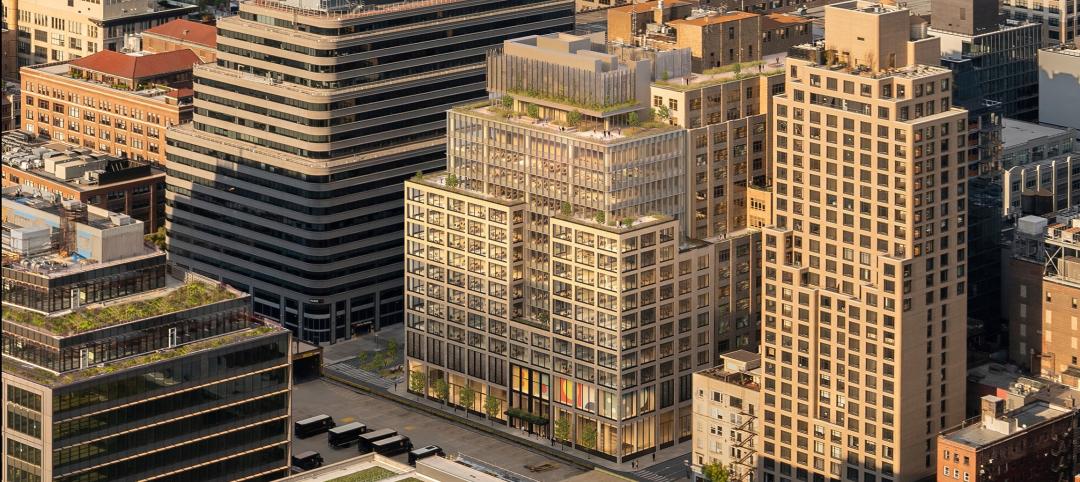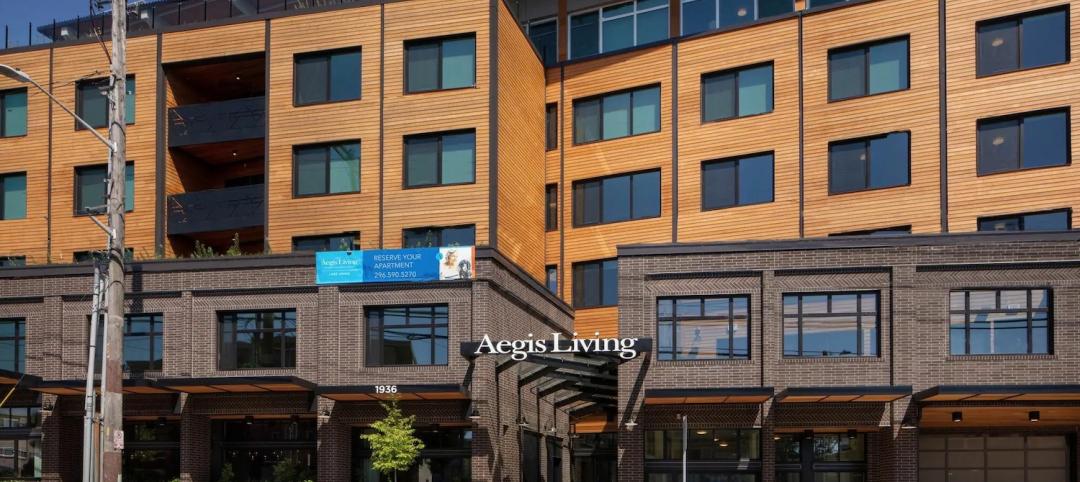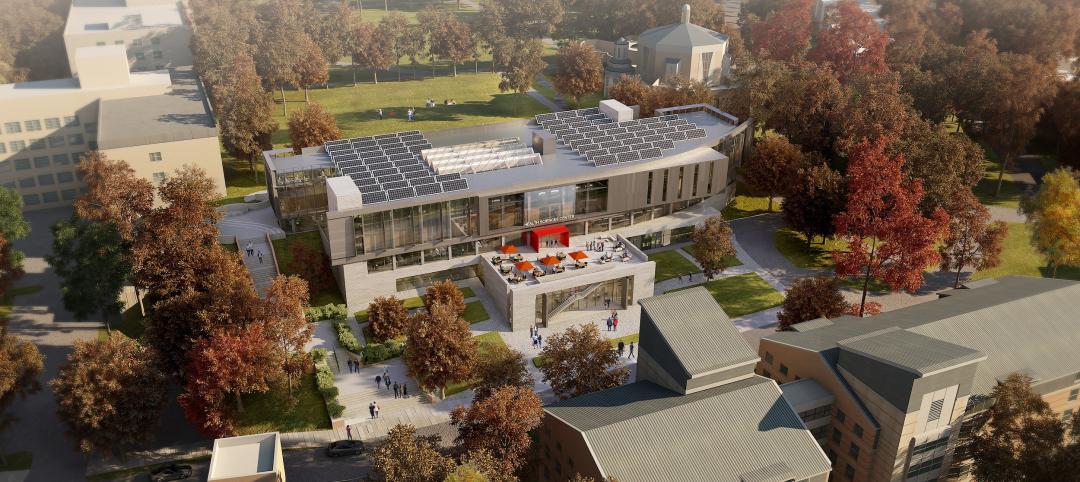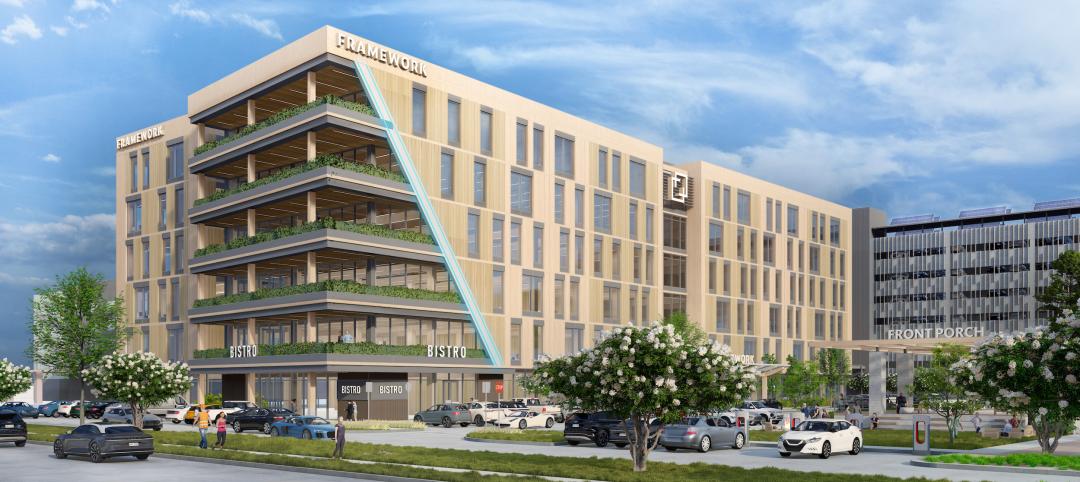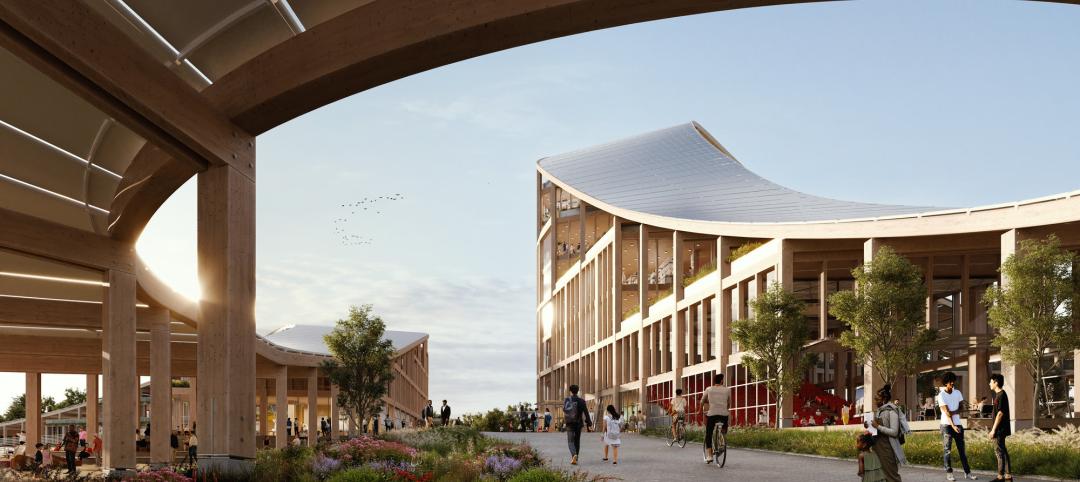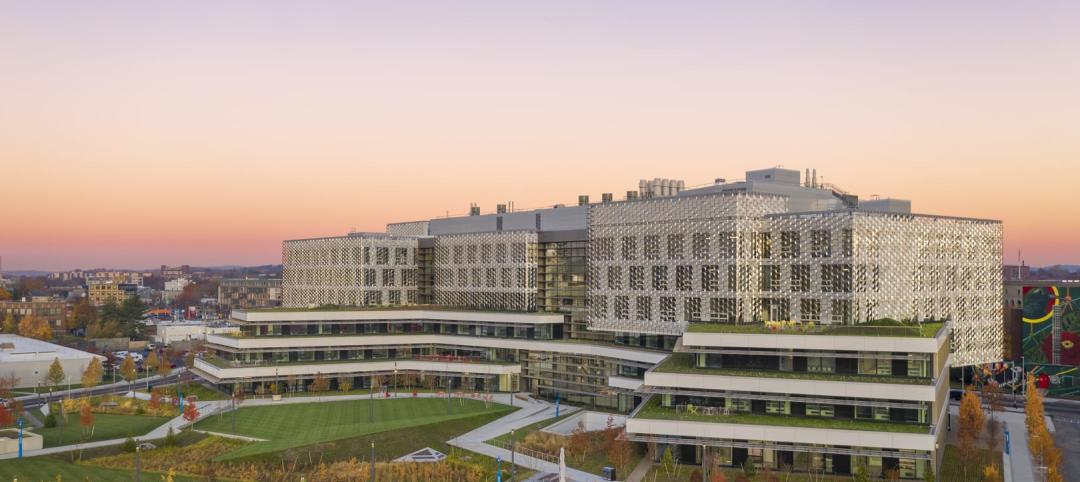Buildings create nearly half of the greenhouse gas emissions in the United States. And AEC firms are challenged to accurately calculate how their designs will impact the performance of a building before construction or renovation begins.
On March 28, a Kansas City-based startup company called PlanIt Impact launched a web application that allows users to determine the environmental and economic impact of a new or renovated building during the design process.
The cloud-based app does this with a 3D assessment tool that incorporates four key aspects of sustainable building design: energy, stormwater runoff, water consumption, and transportation access.
The tool creates a sustainability score for designs by drawing upon open data sources such as U.S. Census, the Department of Energy, City-Data.gov, the National Renewable Energy Laboratory, the U.S. Bureau of Economic Analysis, the National Oceanic and Atmospheric Administration, and Walk Score, which now publishes statistics regarding proximity to amenities like parks, retail, and libraries.
The goal is to make it easier for AEC teams to collaborate, gather real-time information, and model materials costs and the impact of a physical attributes the building and the site.
Dominque Davison, AIA, LEED AP, an architect with DRAW Architecture +Urban Design, is CEO of PlanIt Impact. She concedes that AEC teams could find these data sources on their own. “But the time and energy that would take are considerable. What we’re providing is a low-cost and simple solution that allows teams to work together.”
She went on to say that the platform—which DRAW and its partners have been refining since 2013—“works from a project’s inception to complete. It gives building designs great options to consider all possibilities, and to know the impact of those decisions.”
PlanIt Impact Energy Model scores also translate into energy optimization points for LEED. The tool takes input from any direction and updates its scoring dynamically. PlanIt Impact supports leading software tools, including SketchUp, Rhino, and Revit.
Here’s how it can work: the team designs a building in SketchUp using the PlanIt Impact Palette. The model is imported into PlanIt Impact’s platform, and the user answers a few other questions about the project. Step 3, the user can see and manipulate the results of the sustainability scoring, and compare those results to earlier design versions. And the scoring and designs can be shared with the project’s shareholders.
DRAW Architecture developed this platform with funding from the National Science Foundation/US Ignite (which leverages networking technologies to build the foundation for smart communities), the Mozilla Foundation, and Digital Sandbox, a Kansas City-based firm that provides entrepreneurial financing.
According to PlanIt Impact’s website, a $68 monthly fee gives one user full access to the platform and a SketchUp extension. For $750 per year, one user gets full access plus one hour of training. For $2,000 per year, three users get full access and three hours of training.
Davison says that right now, PlanIt Impact is being marketed directly to AEC firms. And the company is interested in striking relationships with utilities, municipalities, and property management firms.
Related Stories
Sustainable Design and Construction | May 23, 2023
Hord Coplan Macht names Ilijana Soldan as Sustainability Manager
Hord Coplan Macht, Baltimore, MD., has promoted Ilijana Soldan, AIA, LEED AP, EcoDistricts, NCARB, to Sustainability Manager.
Office Buildings | May 15, 2023
Sixteen-story office tower will use 40% less energy than an average NYC office building
This month marks the completion of a new 16-story office tower that is being promoted as New York City’s most sustainable office structure. That boast is backed by an innovative HVAC system that features geothermal wells, dedicated outdoor air system (DOAS) units, radiant heating and cooling, and a sophisticated control system to ensure that the elements work optimally together.
Sustainability | May 11, 2023
Let's build toward a circular economy
Eric Corey Freed, Director of Sustainability, CannonDesign, discusses the values of well-designed, regenerative buildings.
Headquarters | May 9, 2023
New Wells Fargo development in Texas will be bank’s first net-positive campus
A new Wells Fargo development in the Dallas metroplex will be the national bank’s first net-positive campus, expected to generate more energy than it uses. The 850,000-sf project on 22 acres will generate power from solar panels and provide electric vehicle charging stations.
Senior Living Design | May 8, 2023
Seattle senior living community aims to be world’s first to achieve Living Building Challenge designation
Aegis Living Lake Union in Seattle is the world’s first assisted living community designed to meet the rigorous Living Building Challenge certification. Completed in 2022, the Ankrom Moisan-designed, 70,000 sf-building is fully electrified. All commercial dryers, domestic hot water, and kitchen equipment are powered by electricity in lieu of gas, which reduces the facility’s carbon footprint.
University Buildings | May 5, 2023
New health sciences center at St. John’s University will feature geothermal heating, cooling
The recently topped off St. Vincent Health Sciences Center at St. John’s University in New York City will feature impressive green features including geothermal heating and cooling along with an array of rooftop solar panels. The geothermal field consists of 66 wells drilled 499 feet below ground which will help to heat and cool the 70,000 sf structure.
Mass Timber | May 3, 2023
Gensler-designed mid-rise will be Houston’s first mass timber commercial office building
A Houston project plans to achieve two firsts: the city’s first mass timber commercial office project, and the state of Texas’s first commercial office building targeting net zero energy operational carbon upon completion next year. Framework @ Block 10 is owned and managed by Hicks Ventures, a Houston-based development company.
Mass Timber | May 1, 2023
SOM designs mass timber climate solutions center on Governors Island, anchored by Stony Brook University
Governors Island in New York Harbor will be home to a new climate-solutions center called The New York Climate Exchange. Designed by Skidmore, Owings & Merrill (SOM), The Exchange will develop and deploy solutions to the global climate crisis while also acting as a regional hub for the green economy. New York’s Stony Brook University will serve as the center’s anchor institution.
Concrete Technology | Apr 24, 2023
A housing complex outside Paris is touted as the world’s first fully recycled concrete building
Outside Paris, Holcim, a Swiss-based provider of innovative and sustainable building solutions, and Seqens, a social housing provider in France, are partnering to build Recygénie—a 220-unit housing complex, including 70 social housing units. Holcim is calling the project the world’s first fully recycled concrete building.
Green | Apr 21, 2023
Top 10 green building projects for 2023
The Harvard University Science and Engineering Complex in Boston and the Westwood Hills Nature Center in St. Louis are among the AIA COTE Top Ten Awards honorees for 2023.


